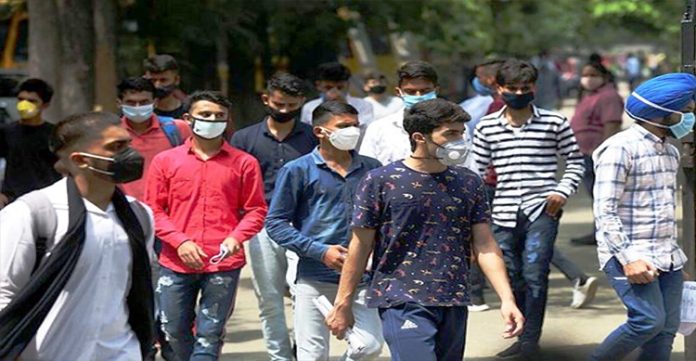Hyderabad: A whopping 432 social and 274 students of Social and Tribal Welfare Residential Educational Institutions have qualified in IIT- JEE Mains 2020 and scored high percentiles on par with the corporate colleges. Sravan Kumar of social welfare IIT Gowlidoddi scored 99.51 in JEE Mains percentiles and a tribal boy Katroth Anil from Tribal Welfare IIT Study Centre, Rajendra Nagar, scored 94.05 percentile while Naini Mamatha, a girl belonging to particularly vulnerable primitive group (PVTG) from tribal welfare Hayath Nagar junior college scored 89.11 percentile. What makes their feat so remarkable is that they are the first generation sons and the daughters of daily wage earners, agricultural laborers, vegetable vendors, roadside tea sellers, security guards, auto drivers. These students proved that extreme poverty and rural background is not an impediment to making their mark in the country’s toughest entrance exam if right opportunities and guidance is provided.
Dr RS Praveen Kumar, secretary, TSWREI and TTWREI Societies congratulated students for their outstanding performance and he said the entire credit goes to committed teachers for their hard work in helping needy students from remote villages and tribal hamlets to secure admission in top-notch IITs and NITs in large numbers every year. ”This transformation was made possible with the generous grant of funds and vision by the chief minister K. Chandrasekhar Rao and giving approval for free long-term intensive residential IIT coaching for poor SC/ST students who can’t afford coaching classes in corporate institutions”. Under the flagship KG-PG Mission, minister for social welfare Koppula Eeshwar and tribal welfare minister Sathyavathi Rathod have been giving utmost priority to the education of marginalized children, further remarked Dr Kumar.
Dr Praveen Kumar also said that the students of social and tribal welfare residential educational institutions have launched a silent academic revolution in Telangana by starting Village Learning Circles (VLCs) in the times of corona pandemic, wherein brilliant students with teaching skills have been conducting classes to their peers and fellow schoolmates in their localities to beat digital deprivation. The VLCs have attracted the attention of educationists and teachers across India and this move was hailed as a path-breaking initiative in reaching out to poor children who were deprived of smartphones, internet connectivity and TVs. “Our students rose to the challenge and converted churches, temples, kitchens, verandas, school buildings, panchayat offices, open agricultural fields and building rooftops as classrooms and keeping the light of education constantly shining in every poor home in an extraordinarily difficult times of covid 19 pandemic”, further claimed secretary.
SOURCE:NSS


